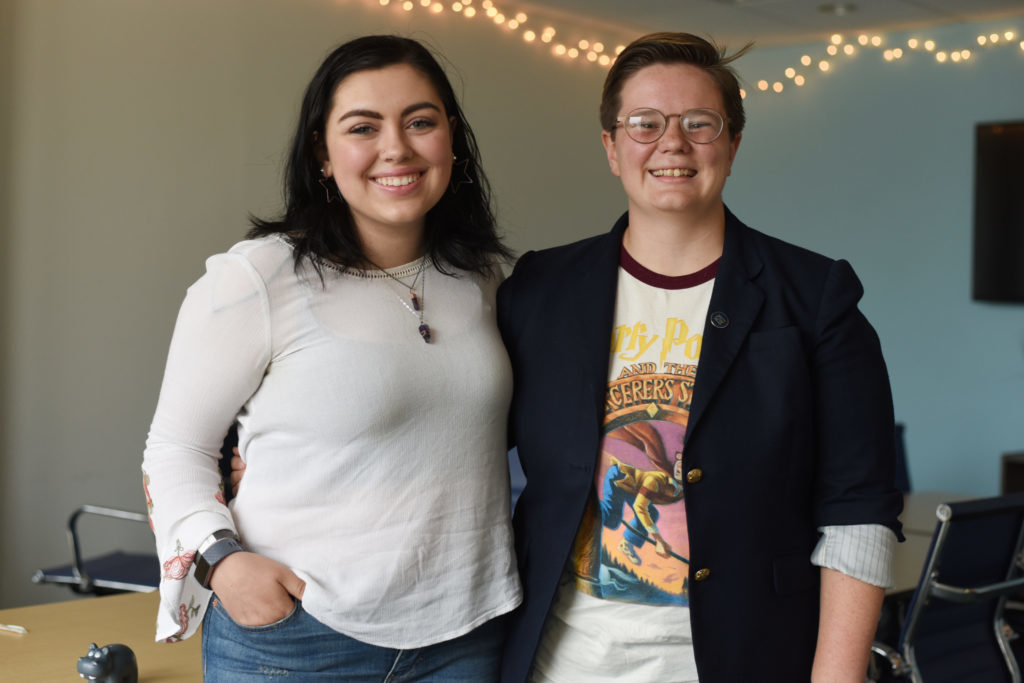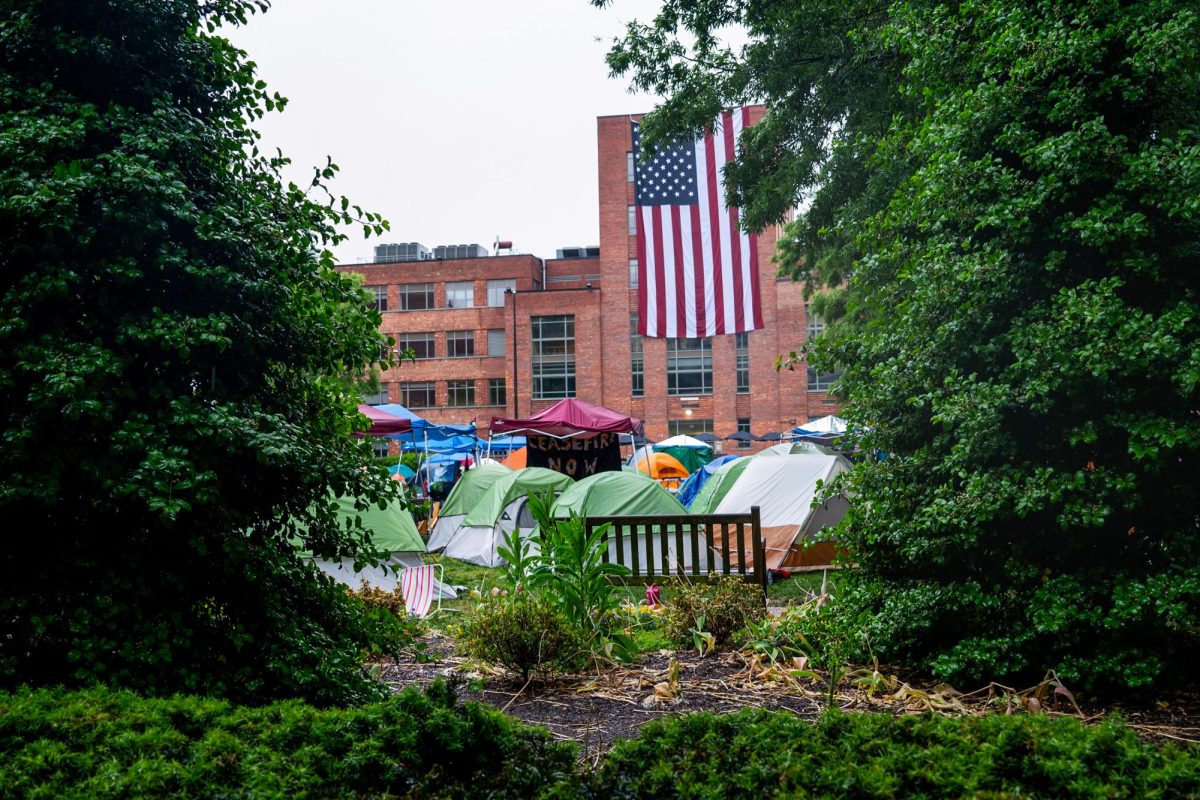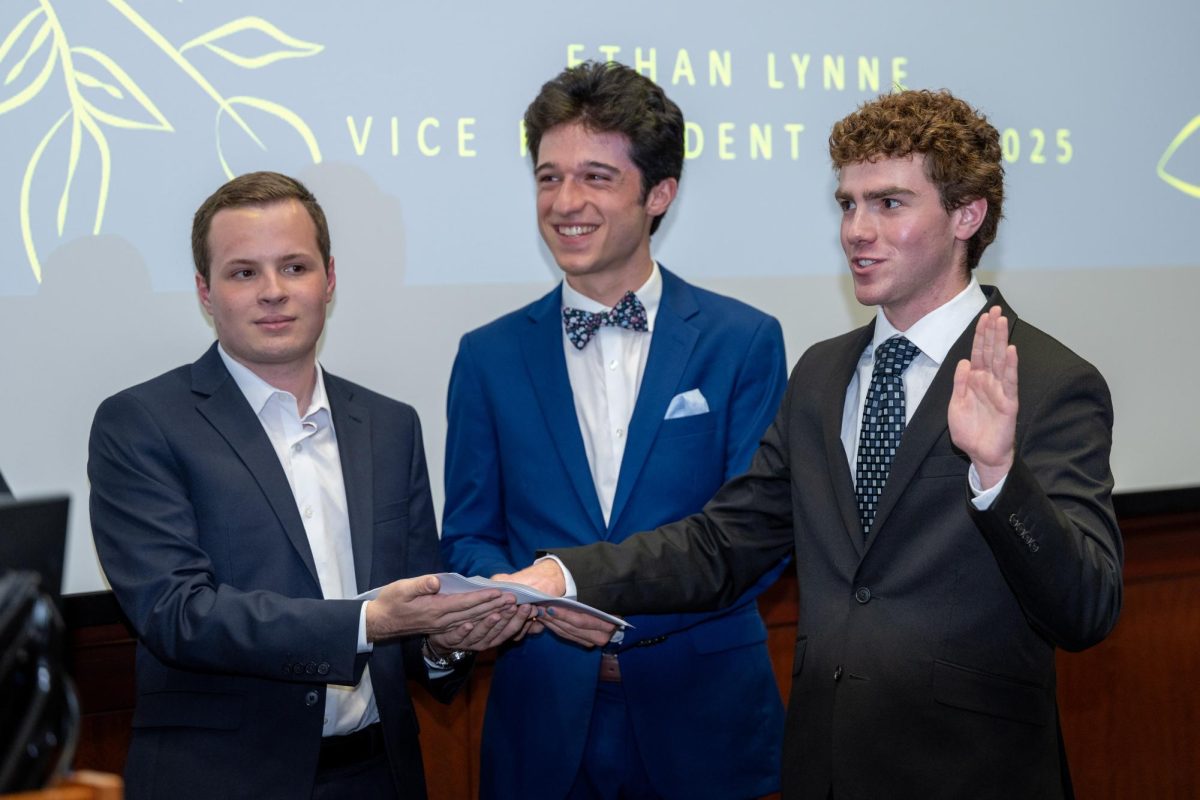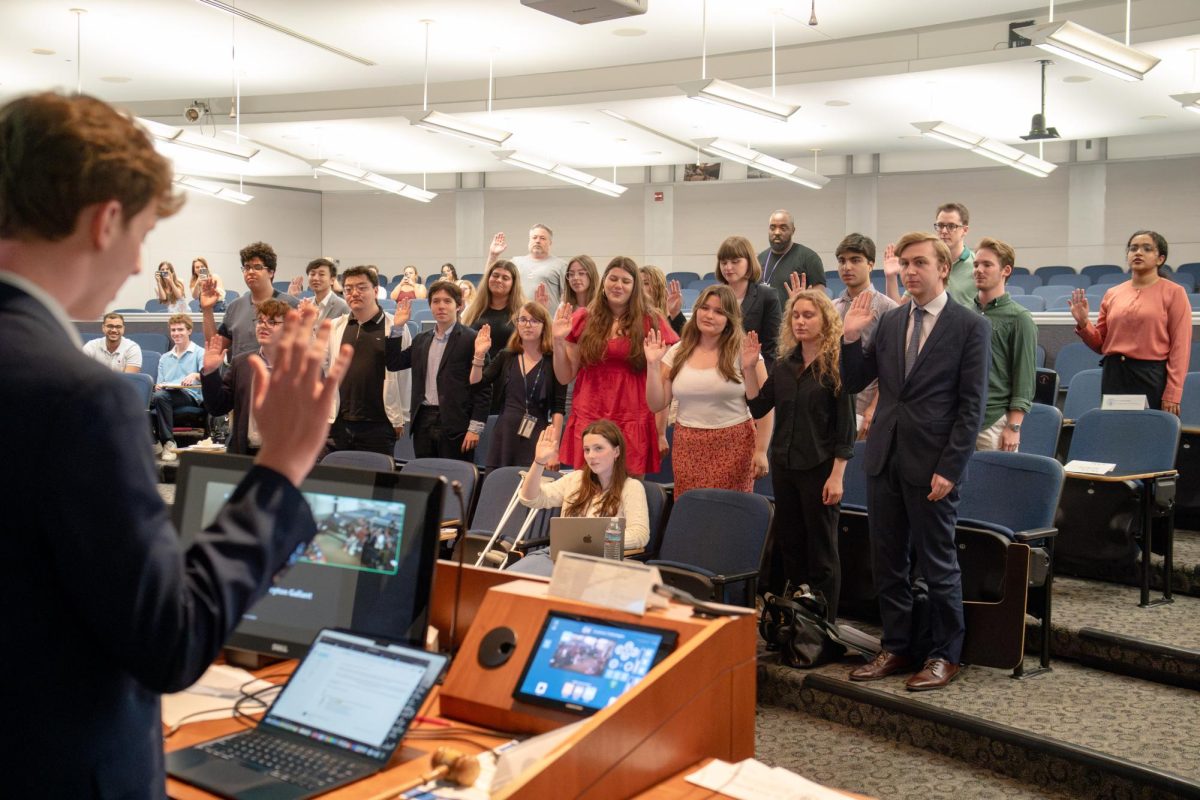The Student Association’s top two leaders are working to enact diversity and inclusion initiatives and push for campus accessibility measures this academic year.
SA President SJ Matthews and SA Executive Vice President Amy Martin said they will collaborate with student organizations, compile reports to document student concerns and meet with officials to share those complaints throughout the year. Matthews and Martin said they aim to focus on advocating for increased classroom accessibility and enacting inclusivity measures after a racist Snapchat emerged earlier this semester.
“We had our conversations with student leaders, especially black student leaders within the SA, being like, ‘What are you being told are things that students would be interested in seeing changed?'” Martin said.
Responding to a racist post
Martin said she and Matthews met with black student leaders to discuss student concerns that surfaced after a racist photo from a sorority president’s Snapchat account surfaced last month and to decide how the SA should respond.
The SA’s diversity and inclusion assembly held a black student forum following the post for students to share their contentions or opinions about the incident.
She said the leaders are exploring ways to advocate for implementing in-person diversity and inclusion trainings for students and establishing a “behavior unbecoming” policy that would prohibit actions like discriminatory behavior.
“All of these were requests coming directly from black student leaders saying, ‘We want to see these changes occur,’ and so now they have hit a top spot on our priority list,” Martin said.
Martin said she and Matthews have met with University President Thomas LeBlanc and officials in the Office for Diversity, Equity and Community Engagement following the incident to bring students’ concerns to light.
“This has happened twice now and people are just wondering what else can we change, unless there’s truly a University-wide commitment to bettering ourselves at every level,” Martin said.
Boosting campus accessibility and safety
Matthews said she and Martin compiled a report, which they presented to Executive Vice President and Chief Financial Officer Mark Diaz last month, outlining recommendations for how to increase classroom accessibility for students with disabilities. The proposal nears the 30th anniversary of the Americans with Disabilities Act, which Martin said the majority of campus is not compliant with.
The report included information about which buildings lack elevators and why desks that have attached chairs are inaccessible for students with mobility issues or who use wheelchairs, Martin said.
“We’re looking for the things we can’t see or that we don’t personally experience on a daily basis,” Matthews said.
Gabriela Rossner, the president of the GWU Disabled Students Collective, said members of the collective walked around campus with Martin and Matthews last week to discuss features, like lips on sidewalks, that hamper accessibility for students with physical disabilities.
She said the SA should prioritize accessibility because disabled students represent a “decent chunk” of the student population.
About 1,500 undergraduate and graduate students were registered with Disability Support Services in September 2018 – roughly a 36 percent uptick from the year prior – and about 12,000 undergraduate students were enrolled at GW last year.
Rossner said the SA is the “closest voice” students have to speaking with officials.
“It’s important for the SA to engage in this issue because disabled students are a large amount of their constituency,” she said. “And on a basic level, we deserve equal access to everything GW has to offer.”
Matthews, the SA president, said the leaders also participated in a two-hour campus “walk-through” last month with Scott Burnotes, the associate vice president of safety and security, to share safety issues students have raised and identify areas in which students might feel unsafe.
“A big focus was lighting, improving lighting around campus, making sure all the blue lights were actually working because students assume they are broken,” Matthews said.
Increasing transparency
Matthews said SA leaders want to increase transparency within the SA. Last spring, the leaders pledged to keep students updated on what the SA accomplishes, after a presidential candidate who vowed to abolish the SA won more than 1,500 votes.
Matthews said she is working with Drew Amstutz, the SA’s vice president for public affairs, to add a tab to the organization’s website that will provide updates on her success completing her platform points, like giving students tap access to all residence halls, which she promised to push for when she stepped into her role.
She said she has also opened her bimonthly cabinet meetings with her executive branch to all students.
“On the cabinet side, our meetings are now public,” she said. “We want everyone to come.”
Martin said she is mandated as executive vice president to produce an end-of-year report that details what the SA worked on throughout the year. But she said she will work to produce a mid-year report to be released during winter break or the spring semester to update students about what the SA completed in the fall.
“That’s really important because I think just communicating what we’ve been working on once the entire year ends isn’t enough,” Martin.
Martin said she and Nicole Cennamo, the SA Senate chief of staff, are coordinating a “State of GW” town hall to be hosted this semester that will bring student organizations and officials together to address student concerns.
“It was something that happened two years ago but didn’t happen last year,” she said. “It’s something that we’re really passionate about bringing back because it’s basically an opportunity to get so many different community stakeholders in a space at once for students to come ask them questions all at one time.”
Dani Grace and Makena Roberts contributed reporting.








